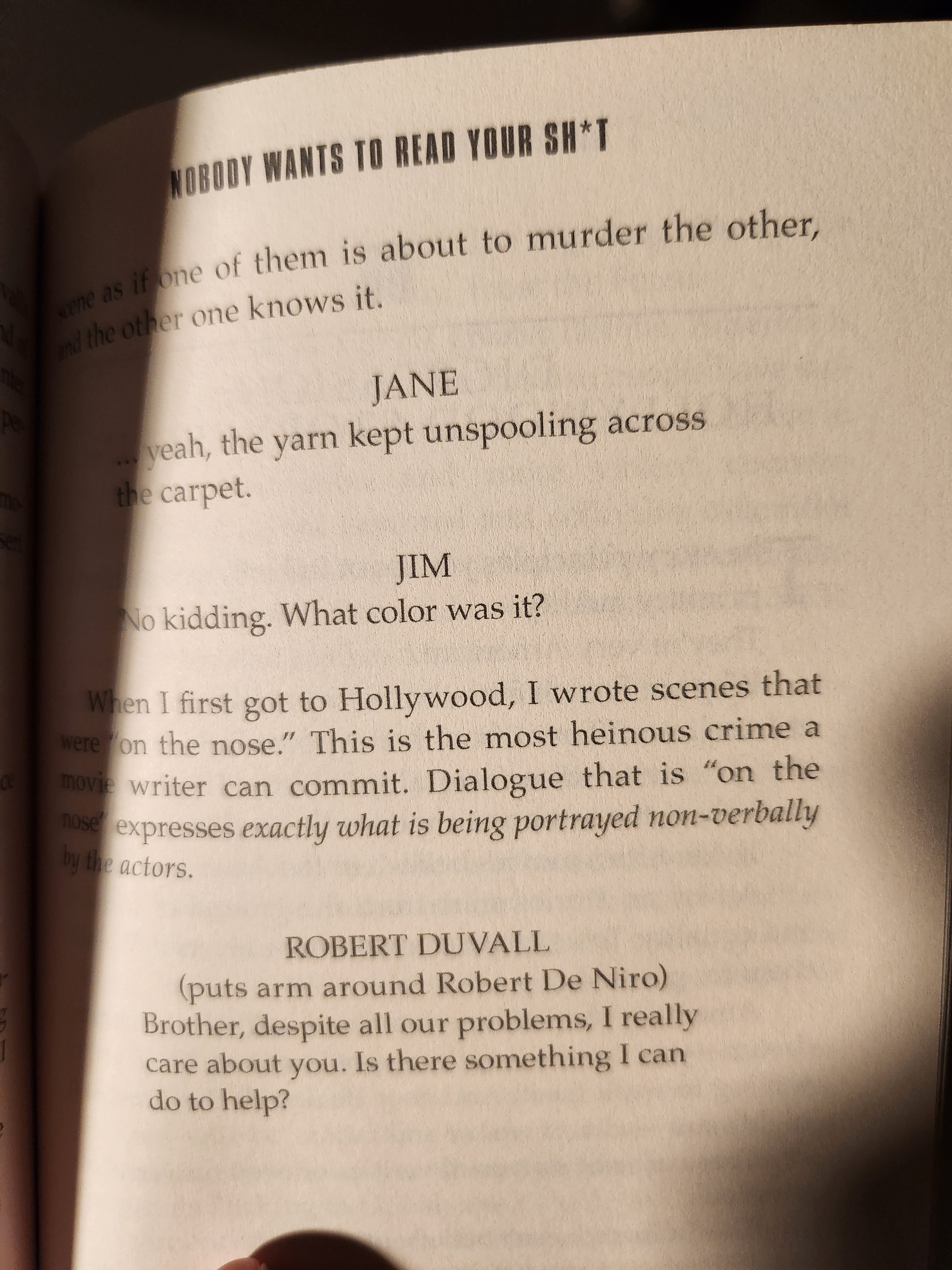Steven Pressfield
#51 Give the second act to the villain
Principle of storytelling. Let the villain get there kicks in. Let them light the hero's tree on fire, give them their glory. Sing, sing for the fall of our hero and mourn for the triumphs of their foes.
Villain speeches
What makes a good villain speech? The bigger and more interesting your villain, the greater and more interesting the hero, and the more satisfying their ultimate triumph.
The best villain speeches are just reasonable enough to make you say yeah, I suppose they have a point.
A good villain speech accomplishes 2 things: allows the antagonist to state their point off view as clearly and powerfully as possible, and but be so rationally stated and so compelling in its logic that we in the audience (or at least a part of us) find ourselves thinking, "Hmm, this villain is evil as hell — but we have to admit he's got a good point!"
#54. Start at the end. Begin with the climax, then work backwards to the beginning. note: he uses Carrie as an example here, which I find amusing, given that King famously phones in his endings.
Figure out where you want to finish, then work backwards to set up everything you need to get you there.
#62. Write for a star
Sometimes when we want to make our story "real" we scale back the dimensions of our characters. Don't. Ask what actor is going to want to play this character? Can I give this to George Clooney? The audience wants to see a star!
What makes a star:
- The character's issues alone drive the story. Everything revolves around them
- Their desires or objectives or issue or stakes seem MONUMENTAL. Life and death, personally. See also Sorkin's obstacle and intention
- The passion for this desire/issue/objective is unquenchable. He will pursue it to the gates of hell ibid
#65 Corollary for 62
Don't be afraid to make the hero suffer. Suffering is drama, and audiences love to watch torment. Actors love to play the tortured character.
#68 Writing for a star again
The hero of our book needs to possess scale and death, just like the lead of a Hollywood movie. Their passages and ordeals and triumphs need to be the stuff of stars. The story's gotta play! It's gotta put asses in seats. So go big. Go for a star.
Pixar technique
Once upon a time, there was ____. Every day, ____. One day, ____. Because of that, ____. Because of that, ____. Until finally, ____.
Exercise: Fill in with your favorite story.
Pitches
Everything is a pitch. Cover letters, fun-raising requests. Pitches are stories with the endings chopped off. A good pitch has 3 acts: the first is the past, the second is the present, the third is the future.
\1. Where you've been, what you want, how you came to want it, what you've done so far to get it.
\2. Where you are now in our work, how you've worked hard and used up most of your resources.
\3. Where you're going and how the object of your pitching can help get you there. Like a choose your own adventure book (?), this shapes your listener into the hero who gets to decide how it ends.
==Keep your audience in mind. Use plain, direct language. Value their time.
9 rules
- Every work must have a theme, must be about something.
- Every work must have a concept, a unique slant or twist or framing device.
- Every work must start with an inciting incident.
- Every work must be divided into 3 acts (or 7, or 8, or 9 if it's slow sequences that build into each other) *note: he says at one point that 3 acts was enough for Shakespeare, who famously used 5.
- Every character must represent something greater than himself. Hmmm.
- The protagonist embodies the theme. One area among many (theme, concept, especially) where I would have preferred more elaboration from the author. He often would say things like "Godfather has a theme" and refuse to elaborate further.
- The antagonist personifies the counter-theme. I don't know that this is necessary 100% of the time. But it's a good tip to keep in mind.
- The protagonist and antagonist clash in the climax around the issues of the theme. Feels on the nose!
- The climax resolves the clash between the theme and counter-theme.
Subtext
Common acting prompt is to have two people read banal lines as if one is plotting to kill the other, and the other knows it. Then read them again as if one is trying to seduce and be seduced. Don't let your dialogue be on the nose.

Want something? Pie, maybe? Is the real line here at the end.
Let your action do two things at once
If there's a car chase, the story shouldn't come to a stop. Rather, the story should turn. Every song in a musical should advance the story. Flashbacks need to bring in something compelling to move the story forward. If you're digressing, keep it moving.
"Never write me a sex scene where nothing happens but the sex. Always have something else happening at the same time. The wife is getting it on in the bedroom and the husband comes home unannounced. He enters the front door. The wife doesn't know. When we edit, we can cut back and forth and milk the suspense. It's not just two people screwing, we've added a second dimension."
Wherever the story stands when the actors start to bone, it better have moved to the next level by the time they finish. If it's a private eye screwing a femme fatale, she better spill some details about the case during the act. Make the story turn and move forward!